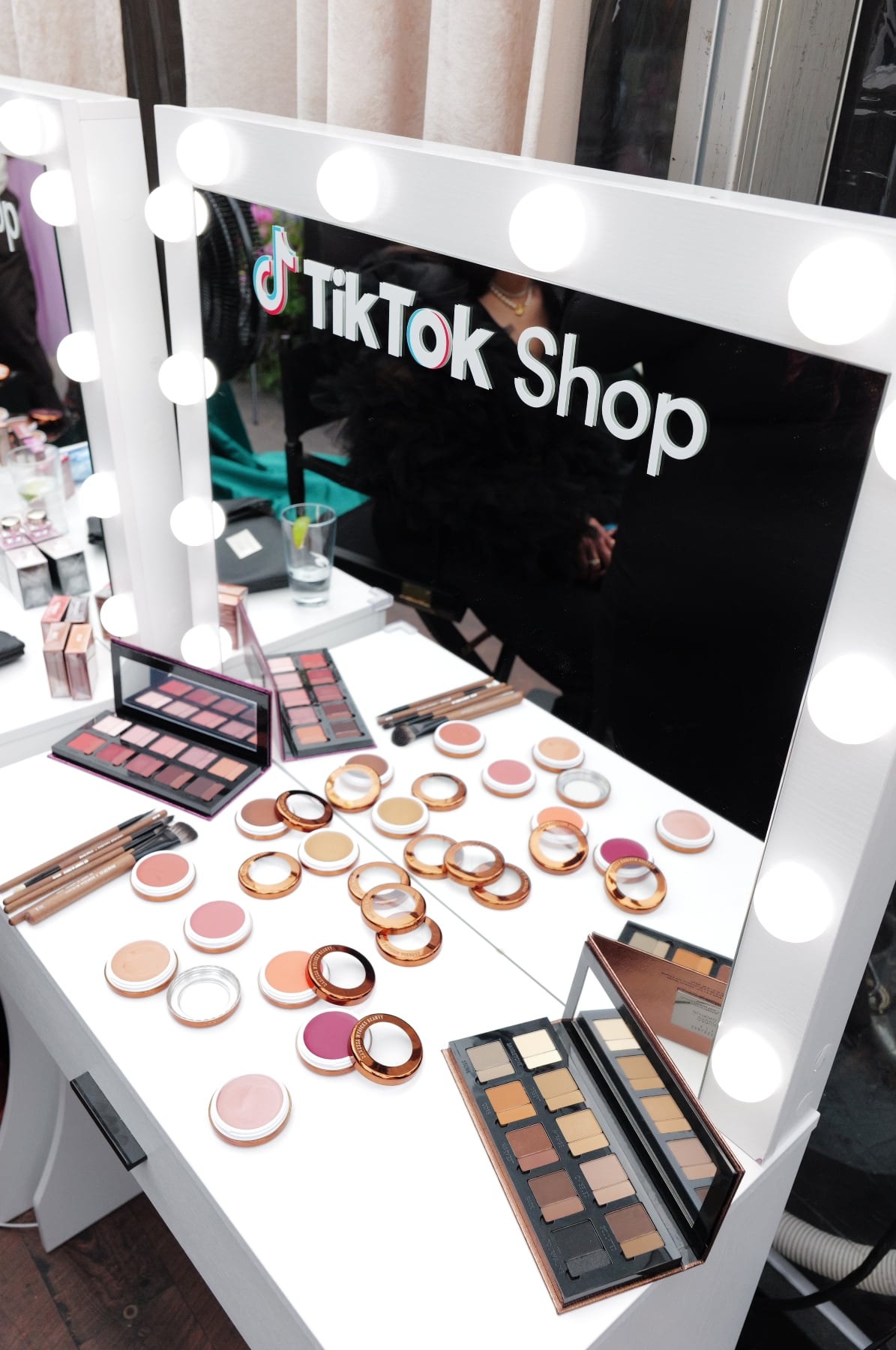
Direct selling or multi-level marketing companies were already being weakened by changing consumer preferences, and the growing power of indie brands.
Now, TikTok Shop is coming for their valuable base of salespeople.
Companies (MLMs) like Rodan + Fields, Arbonne and Beautycounter rely on networks of individuals selling products to their friends, families and coworkers. It was once a winning formula: Rodan + Fields, known for its dermatologist-developed skincare, reached $1 billion in sales by 2016 and was valued at $4 billion in 2018. Beautycounter, which popularised the idea of “clean” beauty, was bought for $1 billion by private equity firm the Carlyle Group in 2021.
While mainstream beauty brands focussed on their Sephora shelf mates when it came to competition, MLMs loomed larger for customers. Yarden Horwitz, co-founder of consumer data firm Spate, said that historically, at least one or two brands would feature in the company’s analyses of the most searched-for firms, which often surprised clients. “[MLMs] had a hidden presence … They had a huge impact with consumers, but other brands didn’t even realise that they were a competitive threat,” she said.
That footing has now slipped. In May, credit ratings agency Moody’s downgraded Rodan + Fields to its lowest possible tier, signifying a high risk of defaulting, citing its shrinking consultant base, declining earnings and changes in consumer shopping behaviour. In April, Beautycounter was bought out of foreclosure by its founder, Gregg Renfrew, who pledged to bring the brand back in a matter of weeks. That relaunch was then postponed, citing financial difficulties, and seller numbers dropped by around a third following its 2021 acquisition. Per Spate’s research, all the MLM brands it tracks on Google such as the aforementioned names and likes of Monat are now in decline.
The author has shared a Flourish data chart.You will need to accept and consent to the use of cookies and similar technologies by our third-party partners (including: YouTube, Instagram or Twitter), in order to view embedded content in this article and others you may visit in future.
The likes of Amazon storefronts, personalised referral codes and TikTok Shop — all of which allow individuals to make commission from qualifying sales — have created new earning opportunities.
What’s more, these opportunities allow individuals to make money without needing to place orders themselves or have to cold-message old high school friends, a leg up on the MLM proposition.
They’re also creating new opportunities for brands to develop super fans.
Building Trust
In less urban areas, MLMs are more popular because there’s less access, said Katie Martin, executive vice president at digital agency Front Row’s content arm, adding that these sales are always “built on trust.” But today, influencers have proven especially good at creating a feeling of authenticity that translates into trust: viewers might see almost every detail of a creator’s life, from a morning routine through to dating dilemmas.
Influencers who reach celebrity status might lose some of their authentic shine, but micro and mid-tier influencers have something of a sweet spot between relatability — and trust.
According to research by marketing consultancy firm Gartner, the engagement rate for influencers with no more than 50,000 followers is the highest at 2.2 percent, while top tier influencers (those with more than 5 million followers) have the lowest engagement rate at 1.3 percent.
That means that even influencers who don’t command millions of views can start to chip away at the referral networks that made MLMs so powerful — and compete on the trust factor, too.
TikTok Shop launched in the US in September 2023. To be eligible for commission, creators only needed 5,000 followers, a lower bar to clear given the app’s tendency to make unheard-of creators go viral at the drop of a hat. For those with sales skills, it represents a vast earning opportunity.
Power Players
In addition to changing beauty’s power structure, TikTok Shop is also reshaping viral content.
Savvy brands have long been aware that they don’t own the social media conversation about themselves, and have deputised creators to do the heavy lifting, with paid influencer videos being better received than brand-made ones. Now, creators tapped into TikTok Shop are making videos that can outperform content that brands pay an influencer to make, or to pay boost onto more people’s “For You” pages.
The author has shared a Flourish data chart.You will need to accept and consent to the use of cookies and similar technologies by our third-party partners (including: YouTube, Instagram or Twitter), in order to view embedded content in this article and others you may visit in future.
“At first, [influencers] were just making content in order to share beauty tips and gain followers … with the hope of getting sponsored,” said Horwitz. “Now, they can just create a showcase on TikTok and make money from it.”
It’s not just the money-making opportunity that makes it a rush for creators. On creators’ “showcase” (a landing page on their TikTok that shows products they’re promoting), viewers can see exactly how many of a product they’ve sold, spurring healthy competition.
The most-viewed TikTok post about the sun care line Vacation is a commission-earnable review from a creator called Vivian Yunn, who has sold almost 14,000 products from a variety of brands on the platform. Estée Lauder-owned Too Faced has a number of commissionable-earnable videos amongst its most-watched – one video alone has 11.3 million views. Per Spate, the brand has sold 42,300 units on TikTok Shop.
For MLMs, the likes of TikTok Shop and Amazon storefronts are yet another blow to their recruitment efforts. But for mainstream beauty brands, ignoring the presence of TikTok Shop could be as short-sighted as ignoring the competitive presence of MLMs in their heyday: the platform is likely where many of their customers are discovering, being educated, and increasingly, shopping. Somer Tejwani, senior vice president of global marketing at Too Faced said the brand has recently hired a full time employee to manage its TikTok Shop presence.
“Oftentimes, it’s creators we weren’t aware of who start to drive views,” said Tejwani.



